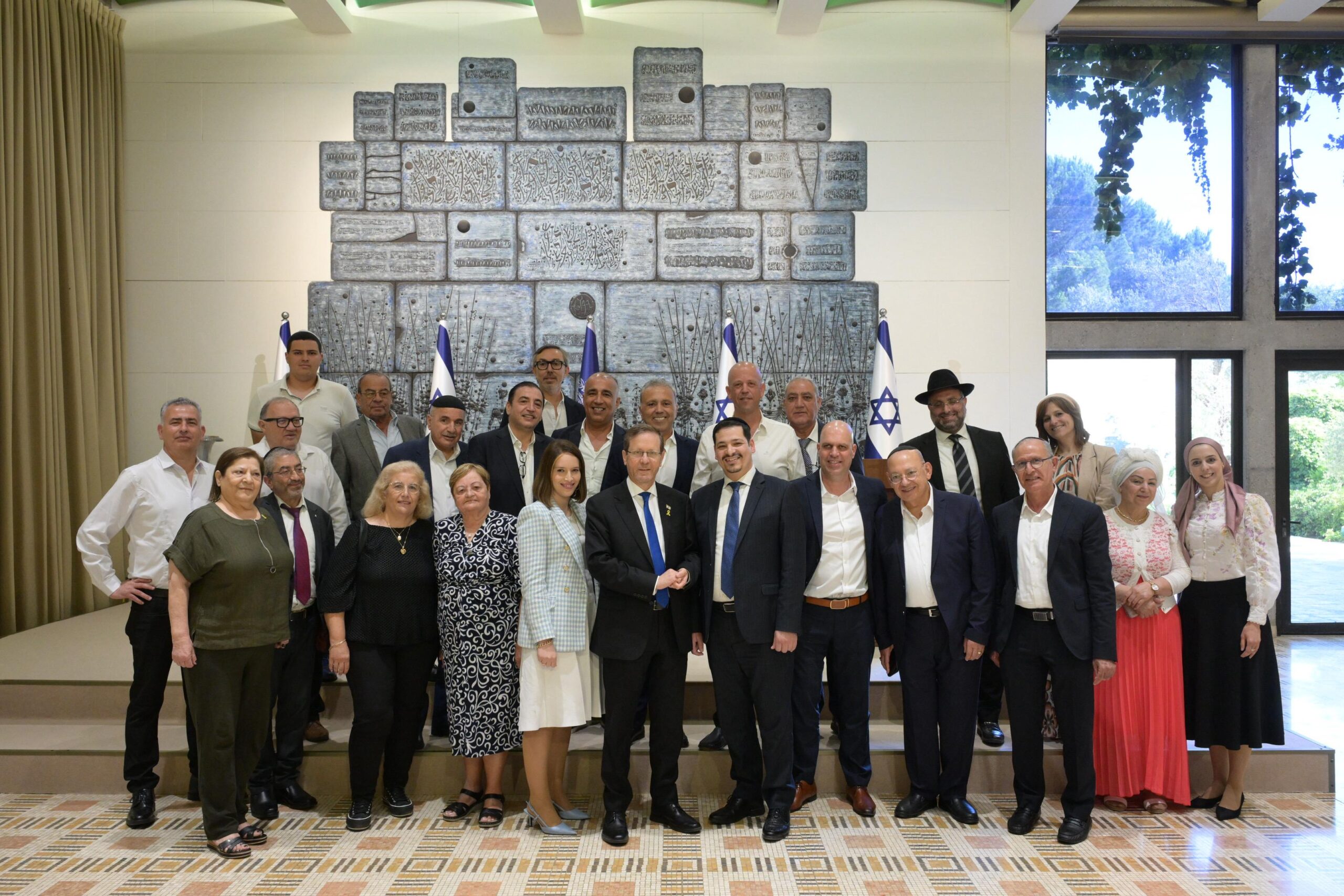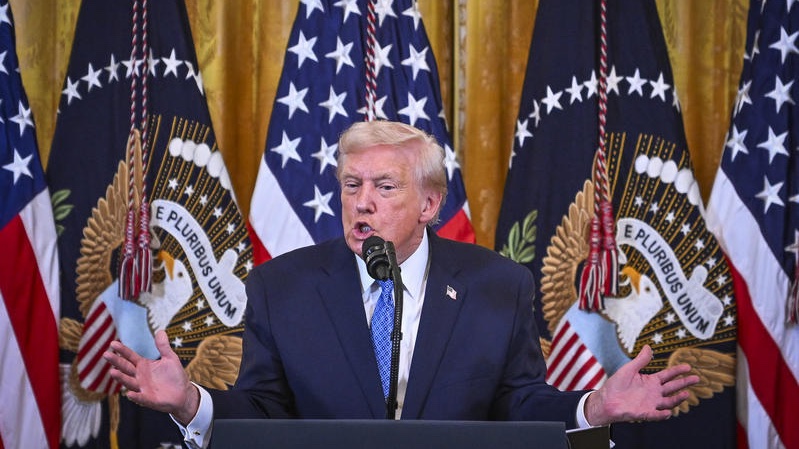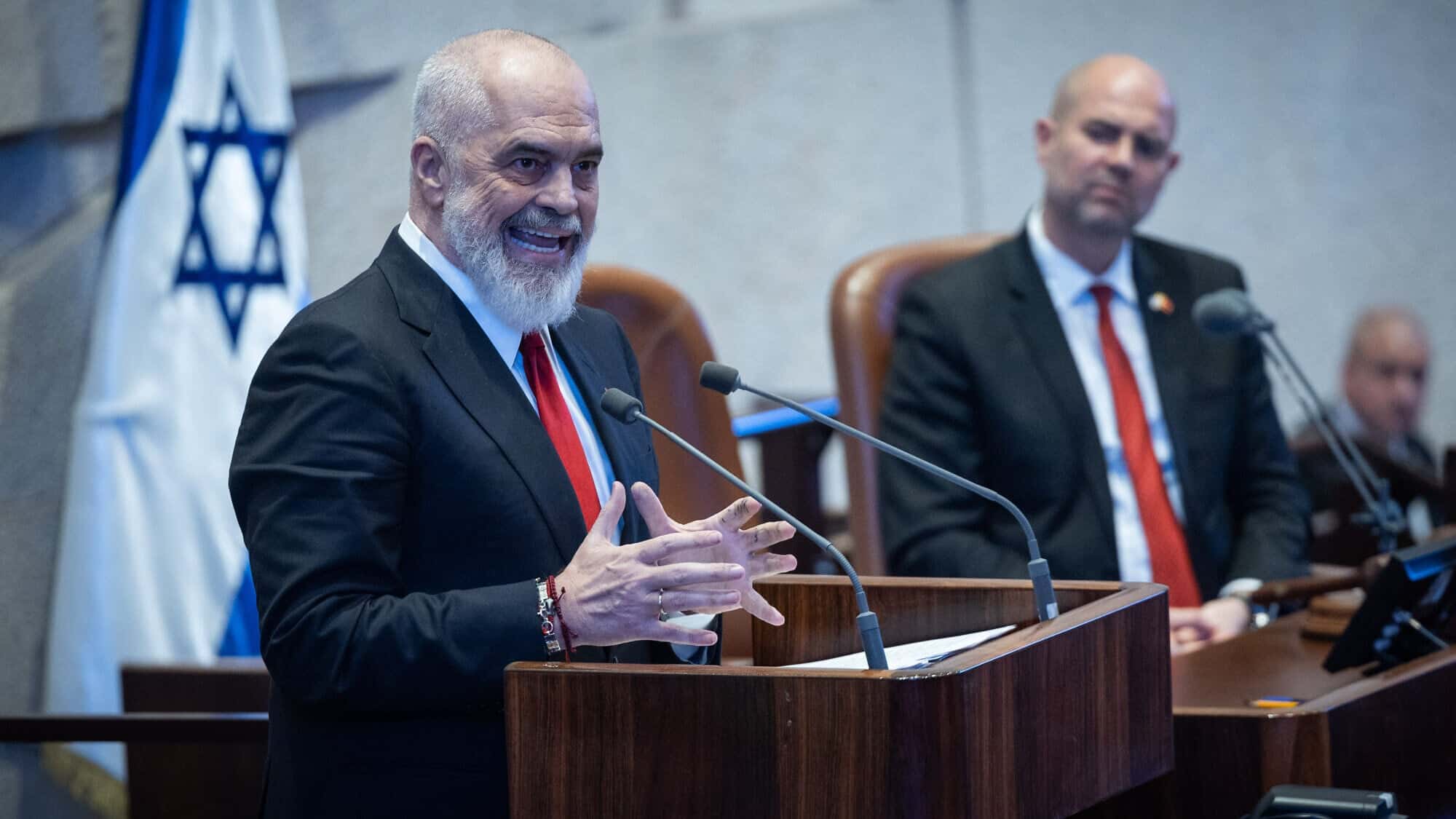Against the backdrop of the recent massacre of the Druze population in Syria, Israeli President Isaac Herzog met with leading figures of the Syrian-Jewish community. During the meeting at the President’s Residence in Jerusalem, Herzog called on all sides to seize the emerging opportunity for regional reconciliation:
“Now is the time to pursue reconciliation in the region. We must not miss this opportunity.”
Among the participants were Rabbi Benjamin Chama, Chief Rabbi of Syrian Jews in Israel, and representatives of the Syrian-Jewish diaspora from around the world. They presented the president with an initiative to establish a coordination center for Syrian-Israeli relations. The goal is to preserve the cultural heritage of Syrian Jewry, honor prominent figures of the community, and promote reconciliation initiatives that transcend religious and national boundaries.
In his remarks, President Herzog emphasized:
“The story of Syrian Jewry is remarkable—and it has yet to be fully told. We are witnessing the weakening of Assad’s grip on power and the diminishing Iranian influence in the region. This opens a rare window for regional reconciliation and new agreements. We must not let this chance slip away.”
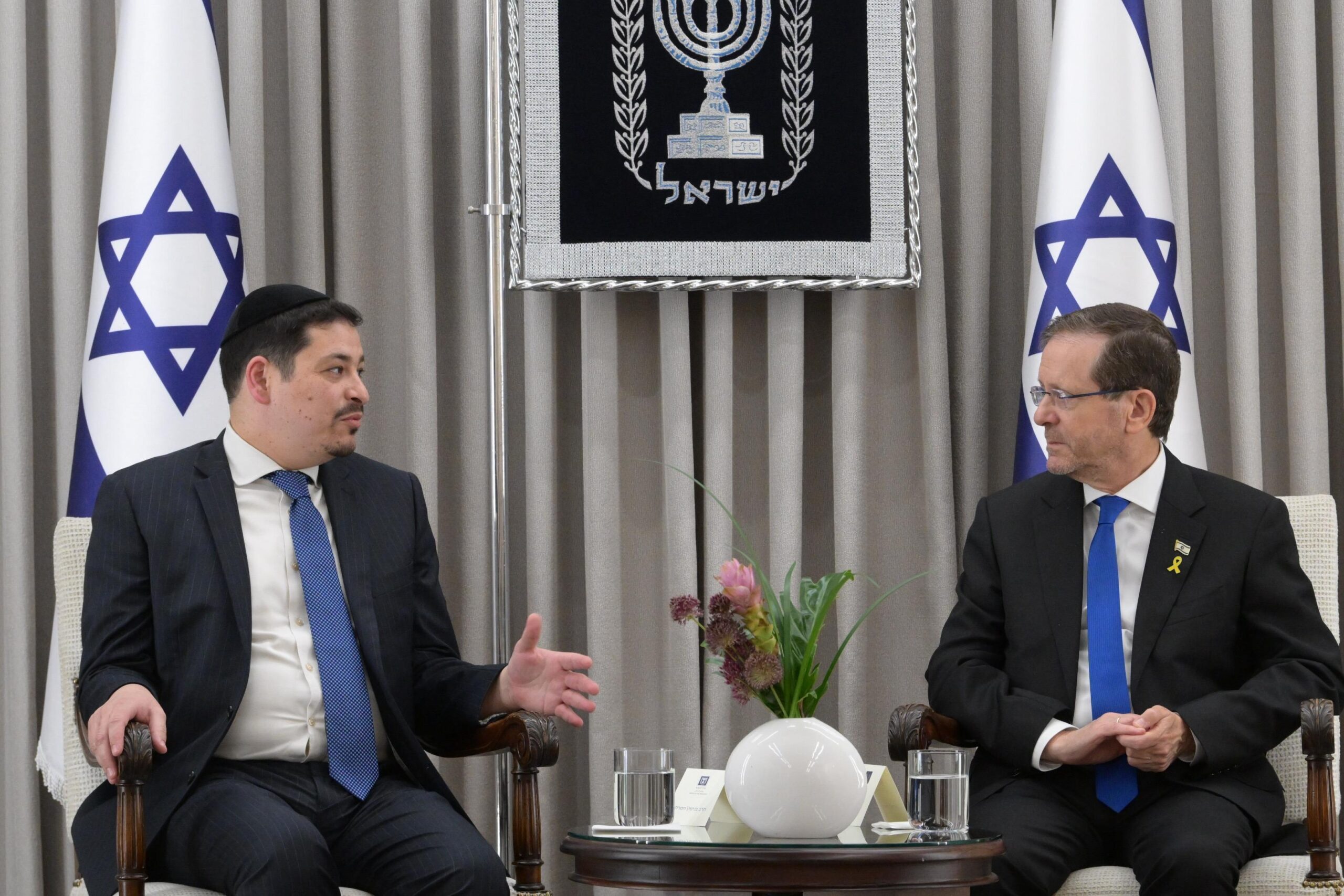
The meeting was spearheaded by Rabbi Benjamin Chama, son of the late Abraham Chama, the last Chief Rabbi of Syria. In his speech, Rabbi Chama recalled his family’s deep historical connection to Syria and shared his dream of a peaceful new beginning:
“There are contacts with the Syrian regime—through intermediaries in Washington and London who know the path my father paved. This January, I sent a letter to the Syrian leadership and received a surprisingly positive response—even from al-Julani, who expressed appreciation for the gesture.”
Rabbi Chama’s ultimate goal, is to return to Syria one day and reopen the Great Synagogue of Damascus:
“For us, these are not just buildings—they are the very soul of an ancient and illustrious community. We are committed to promoting peace between Israel and Syria on all levels. Our goal is a genuine, lasting peace in which both sides respect one another.”
Rabbi Chama also noted that many Israelis have Syrian roots, including a younger generation born in Israel:
“We must preserve our story and pass it on.”
President Herzog added:
“This is not only about memory and heritage—it’s a comprehensive vision for the future. The Jewish people carry stories from every corner of the world, and each community brings its own unique light. Especially in a region as fragile as ours, faith can serve as a bridge—not a barrier.”
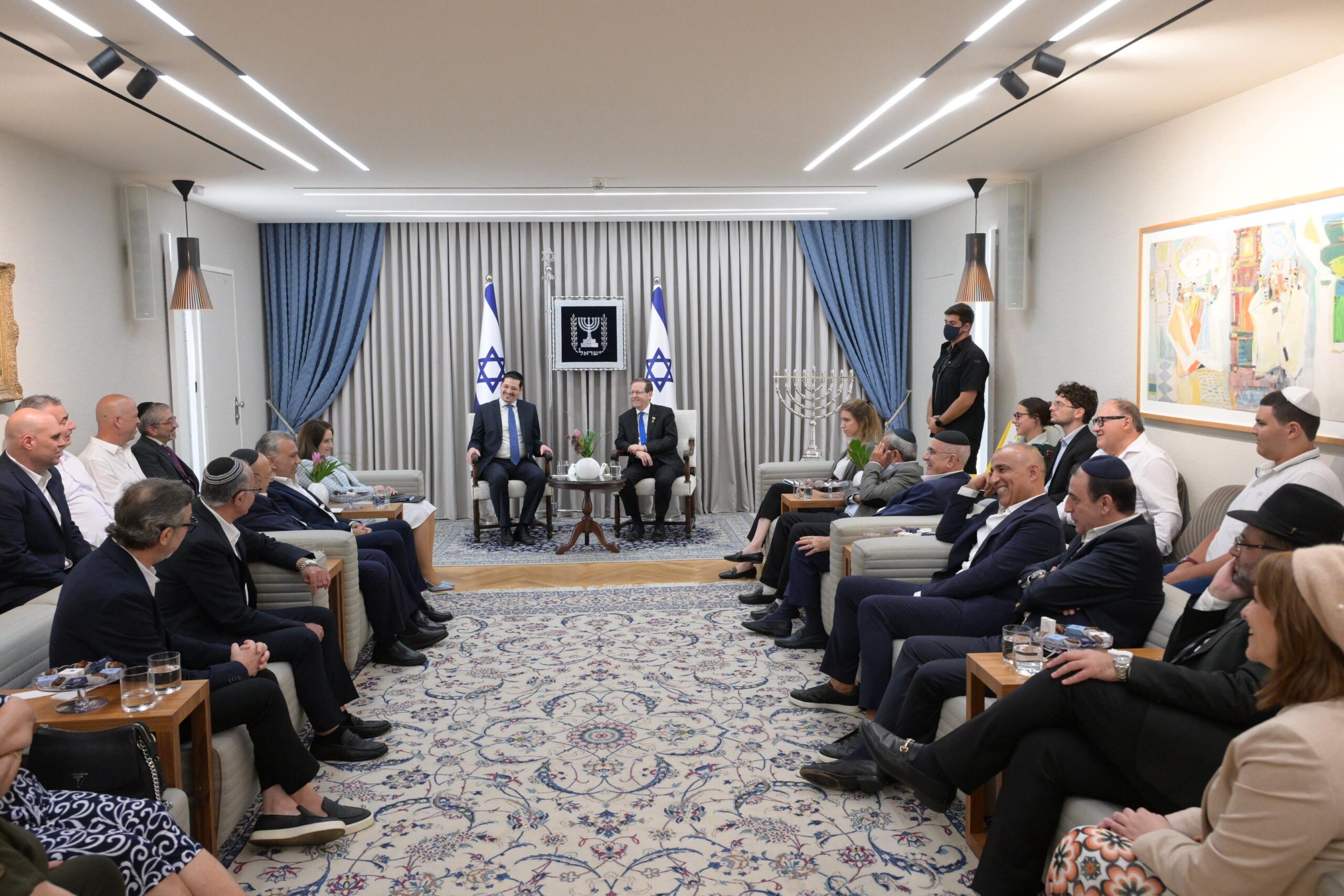
In a follow-up conversation with Ynet, Rabbi Chama stated that only seven Jews remain in Syria today—three men and four women, all living in Damascus. The synagogues and cemeteries are closed. The ancient Jobar Synagogue, one of the oldest in the world, was destroyed during the recent civil war:
“I don’t believe it was intentionally targeted, but the result is painful. Today it is closed, only a heap of rubble. The images circulating [online] show walls—but those are not its original walls; they belong to an adjacent structure. What remains is a pile of stones. That breaks my heart.”
Speaking about the regime’s stance, Chama said:
“According to the current messaging from the al-Julani regime, the intention is peace. The few remaining Jews in Syria are not harassed—on the contrary, there is a sense of goodwill. There are public statements urging Jews abroad to return, promising to restore their property. That’s a sign of reconciliation—and exactly the attitude we hope for.”
When asked whether the Druze massacre made him fear for Jewish safety, he responded:
“What has happened over the past two days in Syria breaks the heart—even though it has no direct connection to the Jewish community. But we stand for peace and reconciliation between religions—whether Christian, Muslim, Druze, Bedouin, or any other group. Every person must respect the other. The images from Sweida are heartbreaking—regardless of who you identify with. We want all communities to live together in peace and coexistence.”
Is he optimistic that peace between Israel and Syria is possible?
“We hope and pray for peace between Israel and Syria. That was the vision of my father, Rabbi Abraham Chama. He believed in peace. Our messages are reaching the al-Julani regime through indirect channels. The moment Israel allows travel to Syria, I believe we will be welcomed with open arms. We cannot predict the future—we are not prophets—but we hope and pray that this peace will come.”


